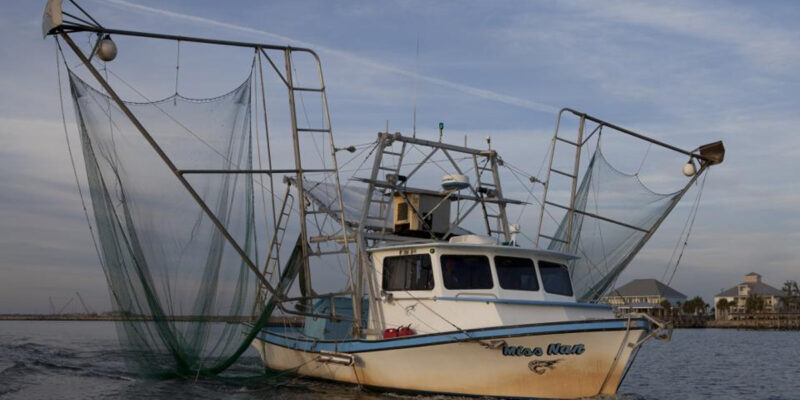I am a lifelong Louisianian, born into a family with deep roots in the Gulf Coast’s seafood and, in particular, shrimping heritage—my family engaged in the American shrimp industry for over a century, helping to form both the American Shrimp Processors Association (ASPA, founded 1964) and the Louisiana Shrimp Association (LSA).
I write with both personal conviction and policy urgency about a vital American resource: shrimp. Americans love shrimp. As my father’s business envelopes proclaimed, “People Love Shrimp.” And they should—it’s nutritious, versatile, and a cornerstone of Louisiana’s economy. But today, our fishermen, processors, and consumers face an uneven playing field from unchecked foreign imports.
The Gulf of America, the heart of U.S. shrimp production, yields an average of about 100 million pounds annually (NOAA data, 2020–2024), supporting 25% of domestic consumption and thousands of jobs in Louisiana alone. Historic harvests in the Gulf have sustained Louisiana families for generations, fostering resilient communities and sustainable practices free from harmful additives. Yet, this pales against imports: the U.S. brings in over 1.6 billion pounds yearly—more than 90% of what we eat—valued at $6 billion (USDA/NOAA, 2020–2024 average). While we cannot meet demand domestically, we must ensure imports meet our standards.
This brings me to a profound health concern echoed by Secretary of Health Robert F. Kennedy Jr.: foreign shrimp, both wild-caught and farmed, often arrives laden with banned antibiotics, bactericides, and chemicals like cesium-137—a radioactive isotope recently flagged in FDA recalls of products from Indonesia and South Asia. Secretary Kennedy has warned that these contaminants, used to combat disease in overcrowded aquaculture ponds, foster antimicrobial resistance and pose long-term risks like cancer from repeated exposure. Europe rejects much of this product; why should American families settle for less?
My expertise stems not from Washington, but from our waters: growing up amid the industry’s rhythms, I witnessed how predatory pricing from subsidized foreign fleets—often ignoring environmental safeguards—undercuts our harvesters. The solution is straightforward and balanced: enforce targeted tariffs to level the field, while imposing strict limits on chemical and antibiotic residues in imports. Mandate third-party certifications and FDA testing, prioritizing health. This protects our fishermen and processors—ensuring fair wages and innovation—without denying consumers access to affordable shrimp.
I stand with President Trump and Secretary Kennedy in prioritizing American health and workers. Let’s honor the Gulf’s legacy: regulate wisely, import safely, and keep “People Love Shrimp” a promise, not a peril.
Sincerely,
Eric F. Skrmetta
Public Service Commissioner
Advertisement
Advertisement

